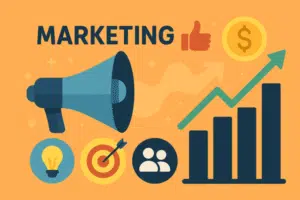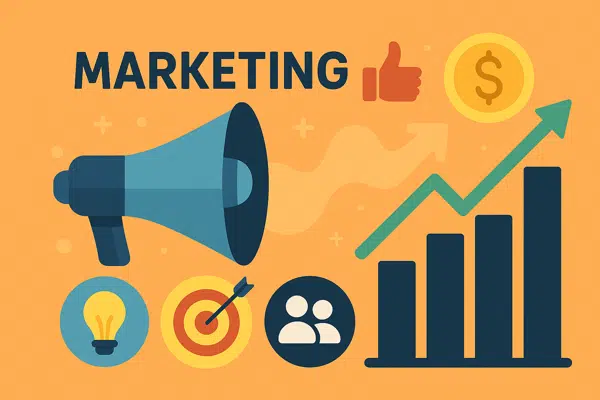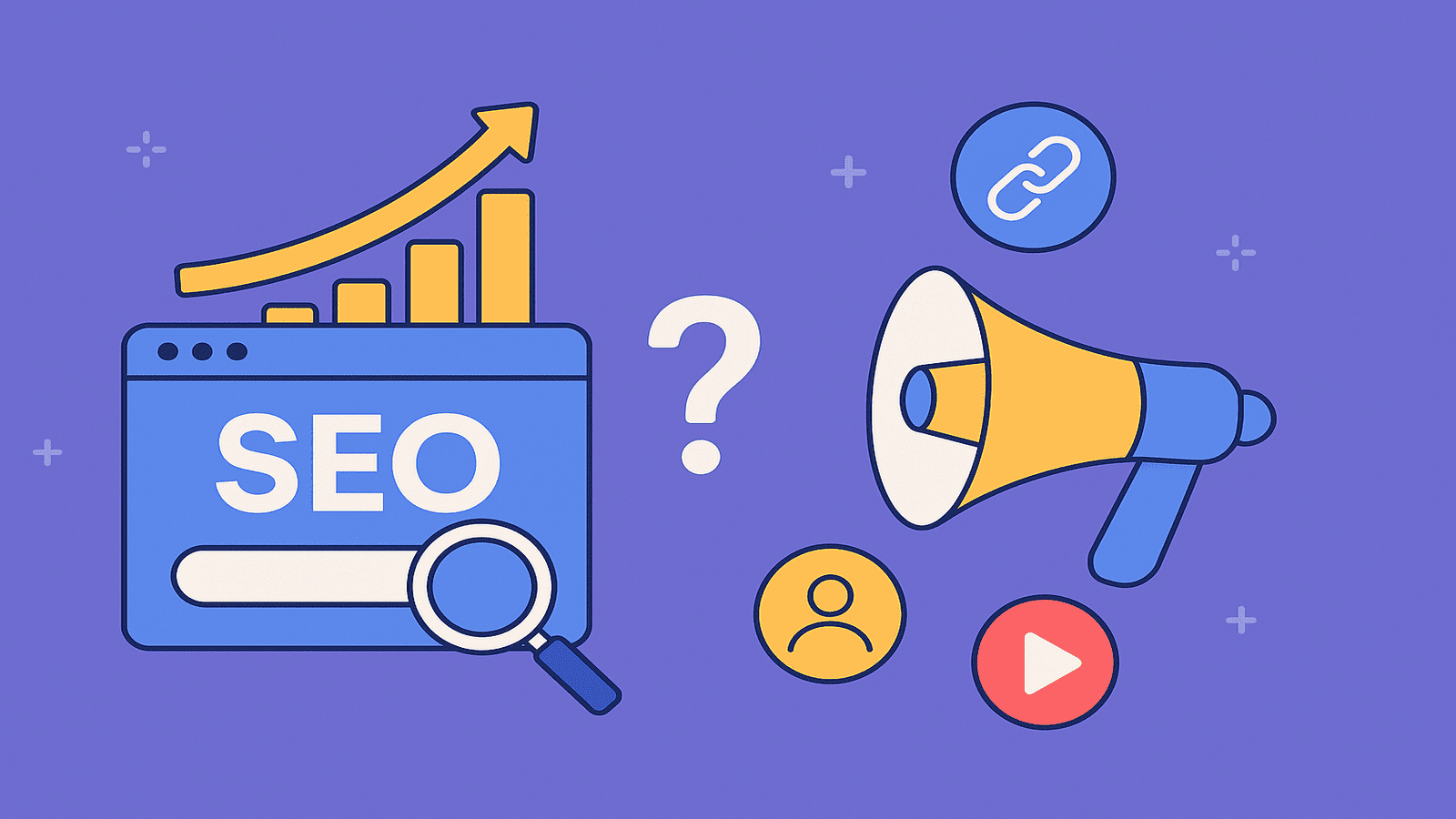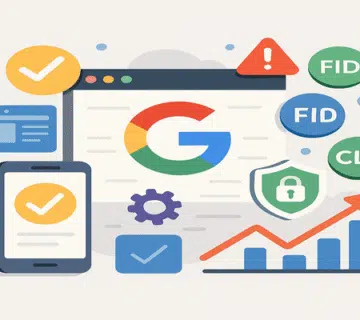Digital Marketing and Its Effect on Revenue: Unlocking Business Growth in 2025
Understanding Digital Marketing: A Modern Necessity
In today’s hyper-connected world, digital marketing is no longer a luxury—it’s a necessity for businesses aiming to stay competitive and profitable. Digital marketing uses online platforms to promote products, connect with customers, and ultimately drive sales.
Definition and Importance of Digital Marketing
Digital marketing encompasses all marketing efforts that use the internet or electronic devices. Businesses leverage channels like search engines, social media, email, and websites to engage with both current and prospective customers.
Evolution of Digital Marketing in the Last Decade
Over the last ten years, digital marketing has evolved from basic banner ads to sophisticated, AI-driven campaigns. Mobile marketing, automation, data analytics, and personalization have redefined how businesses interact with their audiences and measure success.
The Relationship Between Digital Marketing and Revenue
Driving Brand Awareness and Visibility
The more visibility your brand gains, the higher the chances of converting casual browsers into loyal buyers. Digital marketing places your brand in front of the right audience at the right time.

Increasing Lead Generation and Sales Conversions
Through strategies like PPC advertising, SEO, and lead magnets, businesses attract qualified leads and move them efficiently through the sales funnel, ultimately boosting revenue.
Enhancing Customer Engagement and Loyalty
Digital channels offer two-way communication, enabling brands to build stronger relationships with customers, thus increasing repeat purchases and lifetime value.
Core Digital Marketing Channels Impacting Revenue
Search Engine Optimization (SEO)
Good SEO practices ensure your business ranks higher on Google, driving organic traffic that often converts better than paid traffic over time.
Pay-Per-Click (PPC) Advertising
PPC provides immediate visibility and can deliver quick revenue boosts when campaigns are targeted and optimized correctly.
Email Marketing
One of the highest ROI marketing strategies, email marketing keeps customers informed, engaged, and more likely to purchase repeatedly.
Social Media Marketing
Social platforms like Facebook, Instagram, and LinkedIn allow businesses to reach massive audiences, foster communities, and promote offers creatively.
Content Marketing
Informative blogs, videos, and infographics build authority and nurture leads, paving the way for trust and eventual revenue growth.
Affiliate and Influencer Marketing
Leveraging third parties to promote your product increases reach and taps into pre-built audiences that are ready to buy.
How Digital Marketing Strategies Directly Boost Revenue
Personalization and Targeted Campaigns
By using data and analytics, brands can craft highly personalized messages that resonate better with each customer segment, leading to higher conversions.
Data-Driven Decision Making
Digital marketing platforms offer real-time data, helping businesses optimize campaigns on the fly and maximize every dollar spent.
Omnichannel Marketing Approach
Reaching customers on multiple platforms creates a seamless brand experience, reinforcing messaging and increasing purchase likelihood.
Key Metrics to Measure Digital Marketing’s Impact on Revenue
Return on Investment (ROI)
Tracking ROI ensures your marketing efforts are profitable and sustainable.
Customer Acquisition Cost (CAC)
Knowing how much you spend to acquire each customer helps you adjust budgets and improve efficiency.
Conversion Rate Optimization (CRO)
CRO focuses on increasing the percentage of website visitors who complete desired actions like purchases or sign-ups.
Customer Lifetime Value (CLV)
Higher CLV means customers stay longer and spend more—directly impacting long-term revenue.
Case Studies: Brands That Grew Revenue Through Digital Marketing
Small Business Success Stories
Many small brands have scaled globally using smart Facebook Ads strategies or viral TikTok content, proving digital marketing’s power.
Enterprise-Level Digital Marketing Wins
Major brands like Nike and Amazon invest heavily in SEO, personalized email marketing, and social campaigns to maintain market dominance.
Challenges Businesses Face in Digital Marketing
High Competition and Market Saturation
The digital space is crowded, making it harder (and sometimes costlier) to stand out.
Ad Fatigue and Decreasing Attention Spans
Creativity and frequent content refreshes are necessary to keep audiences engaged.
Data Privacy Regulations
Compliance with GDPR, CCPA, and other data laws is critical for maintaining trust and avoiding hefty fines.
Future Trends: Digital Marketing’s Evolving Role in Revenue Growth
AI and Machine Learning in Marketing
Predictive analytics, chatbots, and hyper-personalized experiences are set to revolutionize marketing campaigns.
Voice Search and Smart Devices
Optimizing for voice search and smart home devices like Alexa will become crucial for local businesses.
Video Content Domination
Short-form videos on platforms like YouTube Shorts and Instagram Reels are expected to dominate marketing strategies in the coming years.
FAQs About Digital Marketing and Revenue
How quickly can digital marketing impact revenue?
Results vary, but with a solid strategy, noticeable improvements often appear within 3–6 months.
Which digital marketing channel is the most profitable?
Email marketing consistently delivers the highest ROI for most businesses.
Can small businesses benefit from digital marketing?
Absolutely! Digital marketing levels the playing field, allowing small businesses to compete globally.
How do you measure ROI from digital marketing?
By comparing total revenue generated from campaigns against the total marketing costs involved.
Is SEO still relevant for revenue growth?
Yes! Organic traffic driven by SEO is cost-effective, long-lasting, and highly convertible.
What budget should a company allocate to digital marketing?
A general rule is 7–10% of total revenue, but aggressive growth goals may require a larger budget.








This really answered my problem, thank you!
I do trust all the ideas youve presented in your post They are really convincing and will definitely work Nonetheless the posts are too short for newbies May just you please lengthen them a bit from next time Thank you for the post
Thank you very much for the advice and we will do our best for you.
you are in reality a good webmaster The website loading velocity is amazing It sort of feels that youre doing any distinctive trick Also The contents are masterwork you have done a fantastic job in this topic
Thank you
My brother suggested I might like this blog He was totally right This post actually made my day You can not imagine simply how much time I had spent for this info Thanks
Your writing has a way of resonating with me on a deep level. It’s clear that you put a lot of thought and effort into each piece, and it certainly doesn’t go unnoticed.
Your blog has become an indispensable resource for me. I’m always excited to see what new insights you have to offer. Thank you for consistently delivering top-notch content!
Thank you
Usually I do not read article on blogs however I would like to say that this writeup very compelled me to take a look at and do it Your writing style has been amazed me Thank you very nice article
Thank you
Your writing is like a breath of fresh air in the often stale world of online content. Your unique perspective and engaging style set you apart from the crowd. Thank you for sharing your talents with us.
Wow wonderful blog layout How long have you been blogging for you make blogging look easy The overall look of your site is great as well as the content
Thank you
Thank you for the good writeup It in fact was a amusement account it Look advanced to far added agreeable from you However how could we communicate
Thank you and you can contact us via Contact Us on the website
https://circleaims.com/contact/
Your blog is a constant source of inspiration for me. Your passion for your subject matter is palpable, and it’s clear that you pour your heart and soul into every post. Keep up the incredible work!
Thanks I have recently been looking for info about this subject for a while and yours is the greatest I have discovered so far However what in regards to the bottom line Are you certain in regards to the supply
Thank you very much and of course I am sure
Your blog is a testament to your expertise and dedication to your craft. I’m constantly impressed by the depth of your knowledge and the clarity of your explanations. Keep up the amazing work!
Hi my family member I want to say that this post is awesome nice written and come with approximately all significant infos I would like to peer extra posts like this
Thank you
Your blog is a constant source of inspiration for me. Your passion for your subject matter is palpable, and it’s clear that you pour your heart and soul into every post. Keep up the incredible work!
Your blog is a true gem in the world of online content. I’m continually impressed by the depth of your research and the clarity of your writing. Thank you for sharing your wisdom with us.